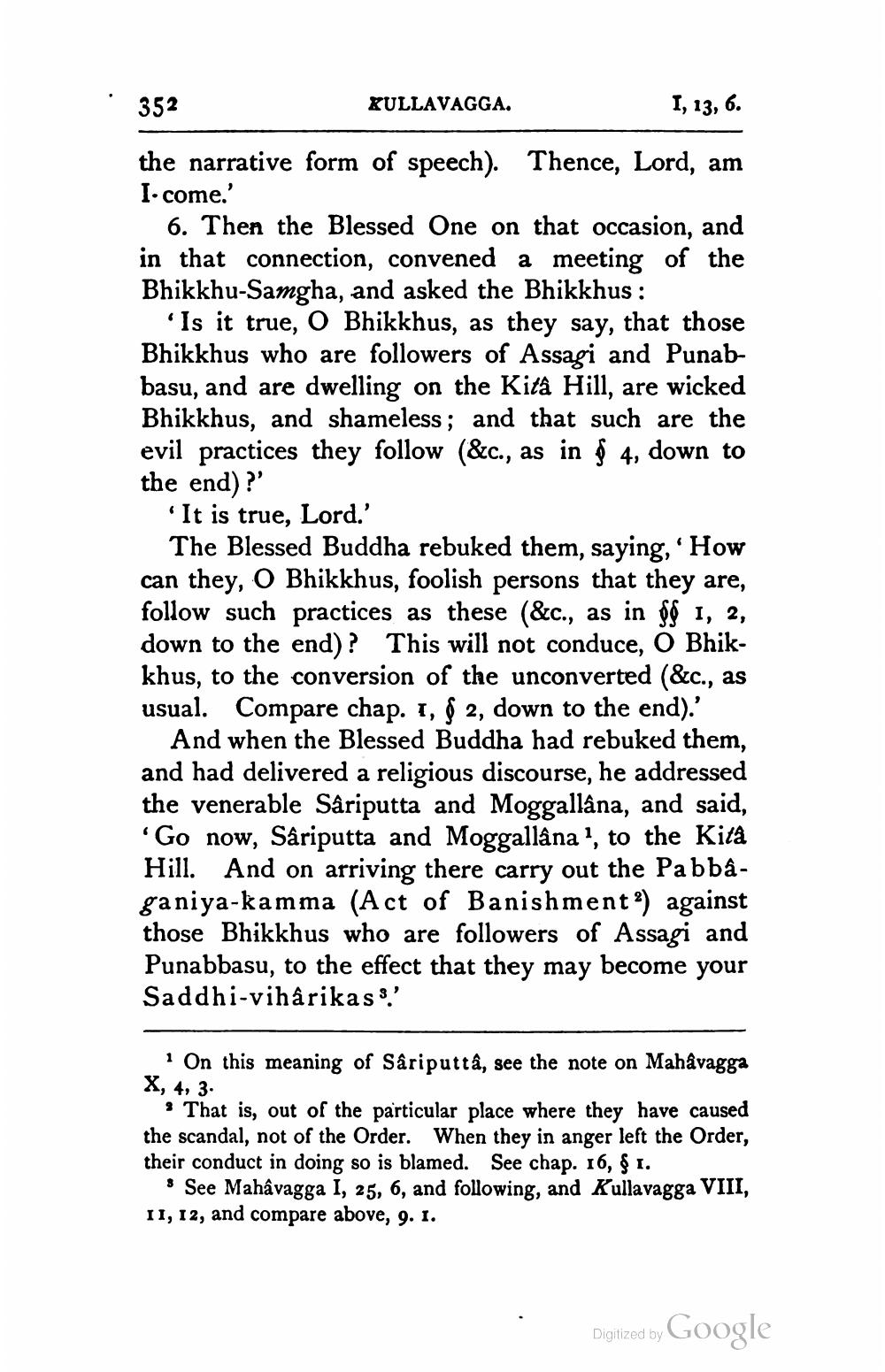________________
352
KULLAVAGGA.
I, 13, 6.
the narrative form of speech). Thence, Lord, am I. come.'
6. Then the Blessed One on that occasion, and in that connection, convened a meeting of the Bhikkhu-Samgha, and asked the Bhikkhus:
'Is it true, O Bhikkhus, as they say, that those Bhikkhus who are followers of Assagi and Punabbasu, and are dwelling on the Kità Hill, are wicked Bhikkhus, and shameless; and that such are the evil practices they follow (&c., as in 4, down to the end) ?'
It is true, Lord.'
The Blessed Buddha rebuked them, saying, 'How can they, O Bhikkhus, foolish persons that they are, follow such practices as these (&c., as in $$ 1, 2, down to the end)? This will not conduce, O Bhikkhus, to the conversion of the unconverted (&c., as usual. Compare chap. 1, § 2, down to the end).'
And when the Blessed Buddha had rebuked them, and had delivered a religious discourse, he addressed the venerable Sâriputta and Moggallana, and said, 'Go now, Sâriputta and Moggallâna', to the Kità Hill. And on arriving there carry out the Pabbaganiya-kamma (Act of Banishment) against those Bhikkhus who are followers of Assagi and Punabbasu, to the effect that they may become your Saddhi-viharikass.'
1 On this meaning of Sariputta, see the note on Mahavagga X, 4, 3.
That is, out of the particular place where they have caused the scandal, not of the Order. When they in anger left the Order, their conduct in doing so is blamed. See chap. 16, § 1.
See Mahavagga I, 25, 6, and following, and Kullavagga VIII, 11, 12, and compare above, 9. 1.
Digitized by
Digitized by Google




